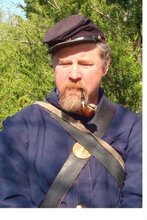 From 1966 to 1968, my family and I spent two years living in Tehran, Iran. How did this come about you ask?
From 1966 to 1968, my family and I spent two years living in Tehran, Iran. How did this come about you ask?My father was in the US Air Force and as a result we rarely stayed in one place more than two years. I attended eight different schools from K-12
My brother Bill and I were both born in Anchorage, Alaska. Another brother, Mark, was born at Scott Air Force Base, near Belleville, Illinois.
Growing up in a military family, my father was rarely at home. Either on base working late or on temporary detached duty (TDY) in some remote part of the world. He was in Pakistan for about two years.
When Dad came back it was to take us to Maryland where we spent the better part of another two years. In the summer of 1966, he announced that he'd been ordered to go to Iran and that he wanted to take all of us.
At the time of this move, I was 13, my brother Bill was 11, and Mark was 4.
We all had to get passports, then after that we flew out of JFK to London, spent one night here, flew in Germany, then caught a plane to Tehran, Iran.
Our first month in Tehran was spent in a hotel while Dad arranged a house for us. I remember we all had the runs from drinking the water.
After a month, we moved into the local neighborhood. There was no 'on base housing' because there was no US Military Base. I think the US military, at this time, was in cooperation with the Iranian military. There was some US facilities for us to visit, like the PX, the Enlisted Men's Club, and of course the American Embassy. I don't recall much about the embassy.
Inside the Enlisted Men's Club, there was a four star restaurant, a casual diner, a barbershop, a bookstore, a bowling alley, a bar, and a movie cinema. Might have been more business's, but these are all I recall.
Our home was in the local neighborhood. Dad had a jeep that we all rode in. Our home was concrete and surrounded by a concrete wall on all sides (walls were thick enough to stop an RPG round I'd wager). Plus our home had a swimming pool. All the US military people lived in the same type homes, but we were the only US family living in this neighborhood. The nearest other white people were about a mile away. It was while living in Iran that sister Carolyn was born. She arrived in October 1966, just a few months after moving into our home.
So we lived with the ragheads and even made friends with a couple young boys. On occasion, my brother and I would walk up to the corner grocery store (about a quarter mile away) and buy soda pop or flat bread. Sometimes we'd play ball in a nearby sandlot or shoot pellet guns at birds or tin cans
I remember Iran as being dry, dirty, and looking like a desert.
 Only the wealthy lived in garden spots. This was the time of the Shah and his coronation on the peacock throne. Everyone loved the Shah, or so I thought.
Only the wealthy lived in garden spots. This was the time of the Shah and his coronation on the peacock throne. Everyone loved the Shah, or so I thought.There was a drainage ditch that lines both sides of the dirt road. The ditch is usually filled with running water flowing from somewhere. Not uncommon to see the ragheads wash their clothes, bath, and defecate in the same ditch water.
While most Americans living here were with the military, some worked for the oil company. Most brought their kids and the kids began attending the Tehran American School, or TAS for short.
TAS offered education for American kids from grades K-12.
I still have my 1968 yearbook from TAS.
To get to school, one had to take the bus. Ragheads were hired by the school to drive kids to and from school every day. The buses drove through the heart of the city and I think it took us about a half-hour to get to school.
The bus drivers were ragheads, as were the school custodians.
We even had a raghead woman working in our home as a maid or 'bodgee'. I don't know what her real name was, but we called her Mary. She came in every morning and cooked and cleaned for a meager wage. All the American people had a 'bodgee'.
The women who came to work for the Americans were pretty hard looking
characters. Under all those black shawls, it was hard to tell how old they were. They could have been twenty or seventy. They all looked about the same. One step above the poor house. They were happy to get the work and the few dollars that came their way. The alternative would be to beg in the streets. I saw a lot of beggars. My brother Bill and I took a garden hose to one who came scratching at our back gate.
There was the Rod and Gun Club that Dad took us to. It might have been near the EM club. Once Dad took Bill and I wild boar hunting with a couple of his Air Force buddies. We spent a weekend and we fished a little and Dad and his buddies fired their M-1 Garand's. But they did not bring down any wild boars.
Near the Rod and Club club was a paperback book swap store here and it was here in Iran that I picked up book reading. With very little in the way of amusements in Iran, I buried myself in books; mostly true life WWII stories. Favorite was the air war series by Martin Caiden and those published by Ballantine Books that I bought from a catalog. I was even reading WWII stuff from the school library. At this time I wasn't interested or aware of Civil War.
Sometimes there'd be parties. Other Air Force people would have a shindig at their house or we'd have one at ours. A lot of drinking and socializing went on. Of course all the kids would get together and amuse themselves some how while the parents got corned. If the weather was nice (it was usually hot all the time) we'd all go swimming in someone's backyard pool.
There was TV, but it only had one channel. The AFRTS, Armed Forces Radio and Television Service, played old shows and old movies. The popular stuff of the day like Batman or Star Trek, we could not get. We could get some syndicated radio shows, but nothing great. One TAS student aired a one-hour rock and roll show. He spun pop records that were hip but not too far out or anti-social. For example, Jan and Dean, the Beach Boys, Herman's Hermits, Gary Lewis and the Playboys, etc. were thought of as 'safe music'. I think AFRTS had its thumb on his play list. The radio mostly featured mellow music or country. Rock and roll was mostly taboo.
This is about all I have to post at this time on life in Iran.
In the summer of 1968, we returned to the USA, Dad retired from the US Air Force, our family settled down in Sedalia, Missouri, I finished High School, my parents divorced, I joined the USNavy in 1972, came home and in 1976 I married. And the rest is history.
If I can recall any other tidbits about Iran, I'll update this blog.


